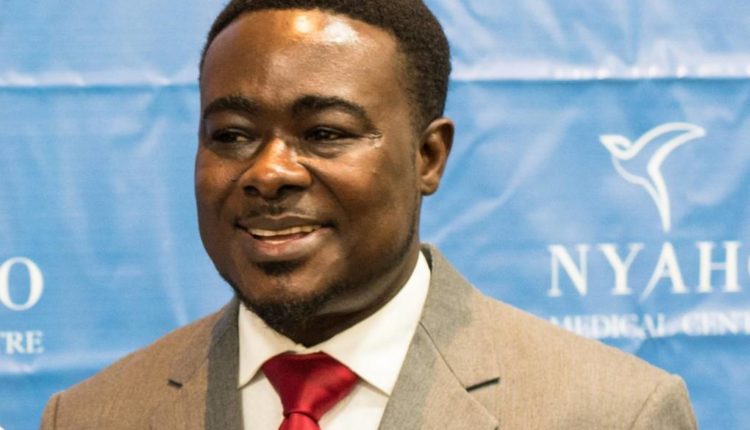Dr Sodzi Sodzi-Tettey writes: Your first Covid-19 case arrives tonight!
The Director’s words rolled with an unyielding certainty, his curious eyes engaging Evelyn in a steady gaze. What an impractical one month she had had, frantically preparing with other colleagues to launch the Ga East District Hospital as a regular district hospital on 1st April 2020.
By March 19, 2020, all that would change with its redesignation first as a quarantine centre and later as the National Covid-19 treatment Center. As if changing the original mandate of the hospital was not disconcerting enough, here they were, being told to prepare for Ghana’s index Covid-19 case, two days after the redesignation and ten days ahead of the scheduled regular start date!
“We were not psychologically prepared,” remembers Evelyn Dowuona, Quality Manager of the facility, that once cared for over 80% of Ghana’s Covid-19 cases. With little known about the new disease, save its fear-inspiring high mortality among infected health workers in other countries, and associated stigma, the reactions were initially negative. Most health workers were very unhappy. Some requested to proceed on leave. Others wanted to be transferred.
Management quickly swung into action, bringing a clinical psychologist on board to support staff. Additionally, training was provided in clinical case management, appropriate use of personal protective equipment and the design of appropriate templates to adequately document activities at the hospital.
“We had to build our own confidence to do our work. I told my team that we are not in normal times. I encouraged the team to quickly make up their minds and to have confidence in the training provided.
We did a test run of how to safely wear and remove the suit and I asked my colleagues to observe and provide feedback to me while I demonstrated. When they realised that I could do this safely, many felt much better about their own safety. The removal of personal protective equipment(PPE) is the most serious aspect. You can easily get infected” explained Evelyn Dowuona. So far, after about five weeks and 178 cases as at April 20, 2020, no health worker at Ga East has been infected. It is a matter of great joy that 75% of patients have also been discharged home with no signs and symptoms.
While on admission, patients are treated with medications in addition to ensuring adequate nutritional support and physical exercise. Fruits and salads are often high on the meal plan. Any associated medical conditions are also attended to. Psychosocial support is not left out, with health workers praying with the patients.
Patients are discharged home using some defined criteria: negative test for Covid-19, significant improvement in signs and symptoms, completion of adequate arrangements for self-quarantine as needed and tying any loose ends relating to contact tracing.
Interestingly, patients and health workers have created a WhatsApp group where questions that arise after discharge can still be addressed with patients also supporting each other. In Evelyn Dowuona’s view, with only two deaths out of 178 cases, people that fit the case definition are better off undergoing Covid-19 tests, followed by rapid treatment once they test positive, rather than wait to come in very ill.
She sadly recalls that both patients that finally succumbed to Covid-19 at Ga East Hospital had been on admission in the four-bed ICU with attendant comorbidities after coming in very ill.
Management has been most supportive, doing a great job of involving staff in decision making. Of particular note have been the efforts of Dr Ebenezer Oduro-Mensah, the Medical Director; Dr Ali Samba, Head of the National Case Management Team and Dr Oliver-Commey.
“They have done very well to create an environment where we can all speak freely if something is bothering us. I actually don’t remember the last time my director left this facility before 9:00 pm. He always leaves after 9:00 pm. The fear among us has been totally eradicated.”
The dedication of the Ga East team has not gone unnoticed with individuals like Mrs Agyin-Asare and corporate entities like the Executive Women’s Network and the Ghana Commercial Bank providing breakfast, lunch or dinner packs daily for staff for two weeks to a month. The leadership of the Ghana Registered Nurses and Midwives Association has also been fantastic in supporting frontline nurses and midwives. It is also a source of great pride and motivation to staff to see their set up serving as a benchmark for other treatment centres in Ghana.
Apart from doubting the existence of Covid-19 as an actual disease, stigmatizing patients is something Evelyn would like Ghanaians to avoid. “When some patients get home, their own family members and the communities don’t want to get close to them.”
The author is the Executive Director, Africa at the Institute for Healthcare Improvement (IHI). The IHI is an independent not-for-profit organisation
Sodzi_tettey@hotmail.com


